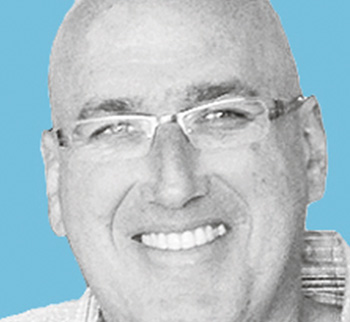Just days before Tisha b’Av, I was among those fortunate enough to be invited to President Reuven Rivlin’s official residence for a very special learning session. The president and Natan Sharansky, head of the Jewish Agency, joined tens of Reform, Conservative, Orthodox and secular Israelis in a study session led by rabbis Meir Azari, Chaya Rowen Baker and Benny Lau, representing each of the denominations, as well as by Moti Zeira, a renowned secular academic dedicated to education for Jewish renewal in Israel.
It was a wonderful occasion, not only because of what we learned from each of these scholars, but because it took place at all, coming in the wake of several other recent events, including a botched attempt by the very same president’s house to hold a bar/bat mitzvah ceremony for disabled children, a ceremony that was cancelled when the ultra-Orthodox mayor of Rehovot discovered it was to take place in that town’s only Conservative synagogue.
More recently, in an interview with Army Radio, Religious Affairs Minister David Azoulay, a member of Shas, the ultra-Orthodox Sephardi party, stated, “A Reform Jew, from the moment he stops following Jewish law, I cannot allow myself to say that he is a Jew.” That ignorant and ignominious remark became a national topic of discussion. Prime Minister Benjamin Netanyahu condemned it, as did several other ministers, who said Azoulay’s statement did not represent the government’s position.
Commentators suggested Netanyahu and his ministers quickly distanced themselves from Azoulay because they understand the demographics in North America, and especially the United States, where Reform Jews form the largest Jewish denomination, with roughly 2 million people associated with it.
While this could be narrowly construed as a story about Israel-Diaspora relations, it has important secondary aspects. Polls show liberal streams of Judaism are making inroads in Israel. A survey published in June showed 59 per cent of Israeli Jews believe Reform and Conservative rabbis should be recognized by the state and awarded status equal to that granted Orthodox rabbis.
Other polls show roughly 8 per cent of Israeli Jews define themselves as Reform or Conservative. That’s nearly 500,0000 people. True, not all are regular worshippers in liberal synagogues, and as deputy chair of the Israel Movement for Reform and Progressive Judaism, I wish they were. But those numbers are growing. In the past six years alone, the number of Reform congregations in the country has almost doubled to 45, including shuls in the periphery in places such as Rosh Pina, Be’er Sheva and Sha’ar HaNegev, a wonderful kehillah serving kibbutzim located near Gaza.
The Reform movement is also making headway into other important segments of Israeli society with the establishment of two Russian-speaking congregations in Haifa and Ramat Gan. And the Israel Religious Action Committee, the Reform movement’s advocacy arm, continues to make advances, working tirelessly in the courts and the public sphere to make Israel a more pluralistic country.
It’s very exciting, but also challenging, particularly when the Orthodox receive state financing, while liberal communities have to come up with their own or fight in the courts to receive their share.
Several years ago, I had coffee with a prominent Reform rabbi who had just made aliyah with his family from the United States. During our conversation, he asserted that for Reform Judaism to succeed in Israel, what was needed was a unique brand of Israeli Reform Judaism. He was right, and that’s exactly what we and our Conservatives colleagues are on the way to creating: alternative, inviting, pluralistic and very Israeli spiritual homes.
Azoulay and his ilk in the Orthodox establishment realize this and are anxious.
Thankfully, Rivlin seems to appreciate that Israel should be home to all streams of Judaism and that Israelis will be enriched by legitimate disagreements and diversity. Ken yirbu – thus they should multiply.
